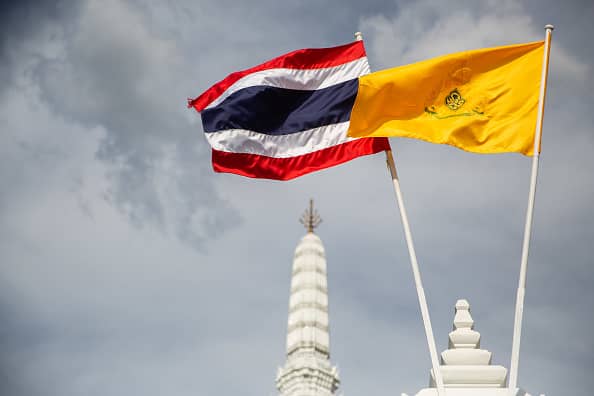17.12.2024
Thailand: the twilight in trompe-l’oeil of the junta
Tribune
31 juillet 2019

Two long months after the (lavish and costly[1]) ceremonies of enthronement of the new king Maha Vajiralongkorn Bodindradebayavarangkun (Rama X), a hundred days after inviting the population of the kingdom to vote (general elections of 24 March 2019), the authorities of the »land of smiles » finally presented Monday 15 July to their 69 million constituents the face of their new government, whose birth was obviously as long as its democratic DNA remains to be demonstrated: ‘’Thailand is now governed as a democratic country with a constitutional monarch, an elected parliament and a government supported by parliament[2], » declares Prayuth Chan-ocha, arrived in power in spring 2014 by the grace of yet another military coup d’état (albeit a generally peaceful one). In the summer of 2019, after a five-year term at the head of a National Council for Peace and Order (NCPO), this severe character with a long military history (general; former head of the Royal Thai Army) is given a second term as Prime Minister. Before adding, as unsmiling and rigid as the protocol of the royal palace, a little optimistic if not exalted: »Our ultimate goal is the nation, religions, the king and the population. The people place their hopes in government’’.
A « civilian » government based on a small majority of elected members in parliament[3] and a coalition of about twenty political parties backed by the Palang Pracharath Party (PPP) of Prayuth Chan-ocha,… where most of the ministerial responsibilities[4] will have been entrusted to personalities close to the former junta[5]…
Burdened by two decades of almost uninterrupted political crises, deep partisan fractures and poor governance, the people in question certainly know where they stand and how to place their hopes (with little risk of disillusionment)…
Thus, the birth of the Prayuth 2.0 government officially marks the end of the very martial NCPO whose place and credit in the modern political history of the kingdom should not in the future give too much work to political science students on campuses in Bangkok and elsewhere, nor be a source of inspiration for the surrounding countries in need of a transition to democracy… We will think in particular of Burma, where the popular appetite for democracy, although shared by several tens of millions of people, remains at the very least thwarted by the omnipotent and resilient caste of the generals…
In this pernickety register, it should be noted, notwithstanding the removed statement of the former general mentioned above, the existence of some dissonant elements opening the way to some questions about the political project proposed by this post-junta regime: This is the case, for example, of this Prime Minister whose rigour – and links with the establishment, the royal palace and the business community – are no longer to be demonstrated, who is also monopolising the portfolio of Minister of Defence; or the institutional framework imposed by the 2017 Constitution (the 20th since the establishment of the constitutional monarchy in 1932…) inspired by the elitist Thailand from above and the men in uniform hostile to governments with a more « populist » agenda[6].
The « new regime », although rid of its martial finery and the very strong name of yesterday (NCPO), will have to work to convince Thais and observers of its (good) political will of popular concord and national unity, of its ability to avoid the redhibitory trap of (too) partisan management of national affairs; two essential objectives that will require major efforts if not particular abnegation…
Witnessing the prevailing scepticism about the sincerity of the new government’s democratic intentions, the concerned statements of various human rights defenders, including: « Violence against pro-democracy activists is a dangerous trend in Thailand« . Human Rights Watch expressed concern in early July, considering that « The fact that the Thai authorities have not seriously investigated (recent) attacks encourages future attacks and suggests a possible role for the authorities[7]’’.
There is no doubt that the international community will pay particular attention in the coming months to the agenda of the Prayuth 2.0 government and its official post-junta future orientation; probably avoiding any excess of optimism and unreasonable expectations.
————————————————————-
[1] According to CNN, the latter would have « lightened » public finances by more than US$30 million…
[2] ‘’Thai Prime Minister Declares End of Military Rule’’, Reuters, July 15th, 2019.
[3] Thank you to the 250 senators of the upper house of Parliament appointed directly by the army….
[4] ‘’Cabinet ministers sworn in’’, The Bangkok Post, July 16th, 2019.
[5] ‘’Thai King Endorses New Cabinet Weeks After Disputed Election’’, The New York Times, July 10th, 2019.
[6] We are naturally thinking here of the governments of T. Shinawatra (2001-2006) and Y. Shinawatra (2011-2014).
[7] ‘’Who’s attacking Thailand’s Democracy Activists? The Authorities Aren’s Saying’’, The New York Times, July 3rd, 2019.